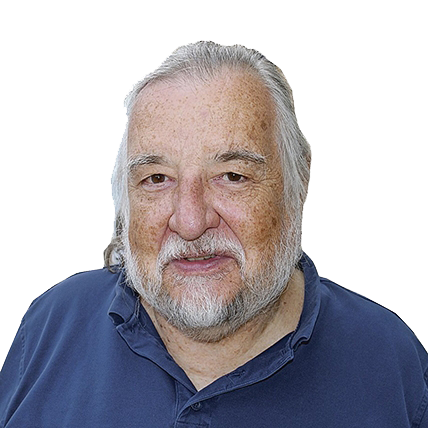As a teacher, I have always been puzzled as to why it is that, while mathematics as a subject may have its divergent streams, Algebra and Geometry being but two of them, all such streams share common axioms and suppositions that guide researchers into seeking new application of the subject’s matter. History, on the other hand, appears to have no such guidelines, even if it seems that a collective group of scholars are attempting to describe a particular event “exactly” as it occurred, with cause, effect and the event itself rolled up into one comprehensive and universally accepted “truth”.
Unfortunately, political science and economic policy often require an historical event to guide its many researchers into concluding that “were such-and-such” to have happened in a prescribed manner, an economic agenda would evolved from its passage that ultimately all mankind would eventually pursue. Also, unfortunately, since this almost never occurs, such practitioners of these “inexact sciences” then “rewrite” history in an alternative form so as to allow their theories to remain “alive” yet still considered and respected by their peers.
Such a “rewrite” of history now has its own label: historical revisionism, and while normally it has been utilized in describing a dispute between Josef Stalin and Leon Trotsky as to the creation of the Marxist-Leninist state of Russia following the Bolshevik Revolution, its current practitioners are more likely to be adherents sworn to follow the economic tenets of capitalism, like our illustrious premier, Scott Moe. Nothing illustrates this factor more than as how he shaped his speech to the annual Premier’s Dinner held just over two weeks ago in Saskatoon.
At his Dinner, Premier Moe makes no effort to portray himself as anything other than a leader following a natural economic course that he believes is bringing prosperity and opportunity to Saskatchewan residents. In his battle, however, he is once more seeking to lead the party through this era utilizing his revisionist suggestion that the NDP is merely a coalition of individuals bound together by their radically created ideas of environmental or socialized thought, which can only be defeated IF everyone “of right mind” resists the temptation to vote for minorly divergent parties that “share” the thoughts and beliefs of the SP, including the Saskatchewan United or the separatist-leaning Buffalo and Maverick parties.
In effect, Moe is trying to sell his re-election based upon the reality that there are only two alternatives to eventually rule Saskatchewan following the predicted Oct. 28 provincial election – either his SP candidates or those standing for the NDP under Carla Beck’s leadership. It is at this point, however, that he expands his perspective to introduce factors not supported by historical precedent, that being first the “accidental” election of an NDP government in Alberta with 40 per cent of the vote, coming “up the middle” between the parties – Wild Rose and Conservative, sharing similar economic perspectives. To Moe, the merging of both entities into the UCP was the only way for Alberta to “correct” this mistake and send Rachel Notley back to the back benches of Opposition status.
Even here, Moe’s statistics lack any conviction or ties to historical reality. Despite a “unified front” against Notley’s NDP, the percentage of votes received by NDP candidates went up some 5 per cent. More to the point, were he to argue this same point in regard to Saskatchewan’s NDP history, he should have known that in 1991 Roy Romanow led the NDP to a 52 per cent total of all votes cast shellacking of the remaining parties, hardly an “up the middle” victory in any sense of statistical logic.
However, it is in the arena of regulation that Moe’s arguments lose the most credibility. Having completely ignored any reference to the need to address climate change, he suggests that the NDP opposition is anti-job, wherein their philosophy before development of an economically progressive policy is held back by their insinuation upon creating regulation under which relevant industries are expected to operate. Without such regulation in place and enforcement of such legislation provided for in environmental acts, we are now forced to consider having to upgrade our water treatment plants so as to filter “forever chemicals” from our drinking water, commodities that now regularly create health concerns that an anti-Covid m-RNA vaccine opposition are claiming the vaccines themselves are creating. More to the point, whereas our overabundance of highly enriched uranium is a source of economic opportunity for the establishment of a stronger nuclear presence in our quest for “greener” energy alternatives, this government STILL will not address the need for safer methods of enforced utilization of this product in the development of electricity, nor will it create a policy that would allow for the research of methodologies that would recycle the dangerous byproducts of this form of electrical generation.
Regulation and better concern for our environment have long shown that we require a more “thinking” form of government to conduct the affairs of our economic futures. The Sask Party would have you believe that such obstruction holds us back from our economic potential, when in fact it is the failure of our governments to foresee the potential of future economic expansion or deny such opportunity to placate the lobbying concerns of industry unwilling to invest in the rejuvenation of their own existence as viable products for our future utilization.
These small steps should be a part of the Saskatchewan Party’s desire to govern for our future after Oct. 28. Why Scott Moe can’t see that is a question I suspect people will be asking with increasing frequency come that date, and why we might finally see the end of their debt-plagued reign.


